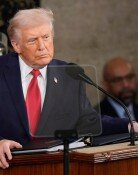Doubt Growing over New Govts Growth Pledge
Doubt Growing over New Govts Growth Pledge
Posted February. 01, 2008 08:06,
The faster-than-expected economic slowdown in the United States has fueled worry that the Korean economy, which is heavily reliant on the global market, could get hit hard.
A U.S. economic slowdown means a decrease not only in Korean exports to the American market but also in Korean exports to the European Union and China, whose economies are also heavily dependent on the worlds largest economy.
Slowing exports will lead to lower corporate profitability and chilly investor confidence. This in turn will cause the Korean stock market to nosedive and consumers to tighten their purse strings. All of these developments will inevitably hamper economic growth.
Against this backdrop, the incoming government is unlikely to achieve its annual growth target of six percent, since it aims to boost the economy through job creation coming from aggressive corporate investment.
○ Prospects for double-digit export growth
The U.S. economy in the fourth quarter of last year grew just 0.6 percent, half the market consensus of 1.2 percent on a yearly basis. Market conditions in this years first quarter have worsened due to the subprime mortgage crisis, snowballing losses of financial firms and the plummeting stock market. Certain economists even predict that the U.S. economy will post negative growth in the first quarter.
The business slowdown in the United States will deal a serious blow to Korean exports, the driver of the Korean economy.
Last year, 12.3 percent of all Korean exports went to the United States, down from 21.6 percent in 2002. But the American market is still big for Korean products.
Even worse, Korean exports to Asian markets will suffer an additional setback if the U.S. slowdown affects emerging economies such as China and Southeast Asian countries.
The Korea Development Institute said a drop of one percentage point in U.S. economic growth leads to a fall of 0.57 percentage points in Korean exports and a dip of 0.28 percentage points in economic growth.
The think tank also warned that if the global economic growth rate falls half a percentage point due to the U.S. slowdown, Koreas exports will decrease 1.01 percentage points and its growth rate will slip 0.51 percentage points.
○ Growth Driven by Consumers & Biz Investment
Exports contributed 1.2 percent to Koreas economic growth of 4.9 percent last year. Domestic demand chipped in the remaining 3.7 percentage points. Export contribution to economic growth will decrease to half a percent while that of domestic demand will increase to 4.3 percent.
In sum, despite sagging exports, Korea can match last years economic growth if businesses increase investment and consumers spend more. But that is only if the governments expectations materialize.
The report Industrial Activity in December 2007 released by the Korea National Statistical Office yesterday said sales of consumer goods increased a mere 2.6 percent last month from a year ago.
Decembers year-on-year growth was far lower than 6.6 percent for all of last year, 5.5 percent of the fourth quarter and six percent of November. Worse, sales of consumer goods fell 1.7 percent in December from November.
Many analysts also predict that consumer confidence will further weaken since the stock market has fluctuated due to the U.S. subprime mortgage crisis.
Korean companies could also snub increasing investment in the face of deteriorating global conditions, unlike the expectations of the incoming government.
Several non-government experts said Seoul should come up with a short-term economic stimulus package in the wake of the uncertainty.
But a government official said, Economic conditions are not bad enough to consider a stimulus package, which could result in side effects.
higgledy@donga.com jarrett@donga.com





![[단독]폴란드, 韓 해군 최초 잠수함 ‘장보고함’ 무상 양도 안받기로](https://dimg.donga.com/c/138/175/90/1/wps/NEWS/IMAGE/2026/02/27/133437397.1.jpg)
![[속보]“하메네이 사망” 트럼프 공식 발표…“일주일간 폭격할 것”](https://dimg.donga.com/c/138/175/90/1/wps/NEWS/IMAGE/2026/03/01/133441418.1.jpg)
